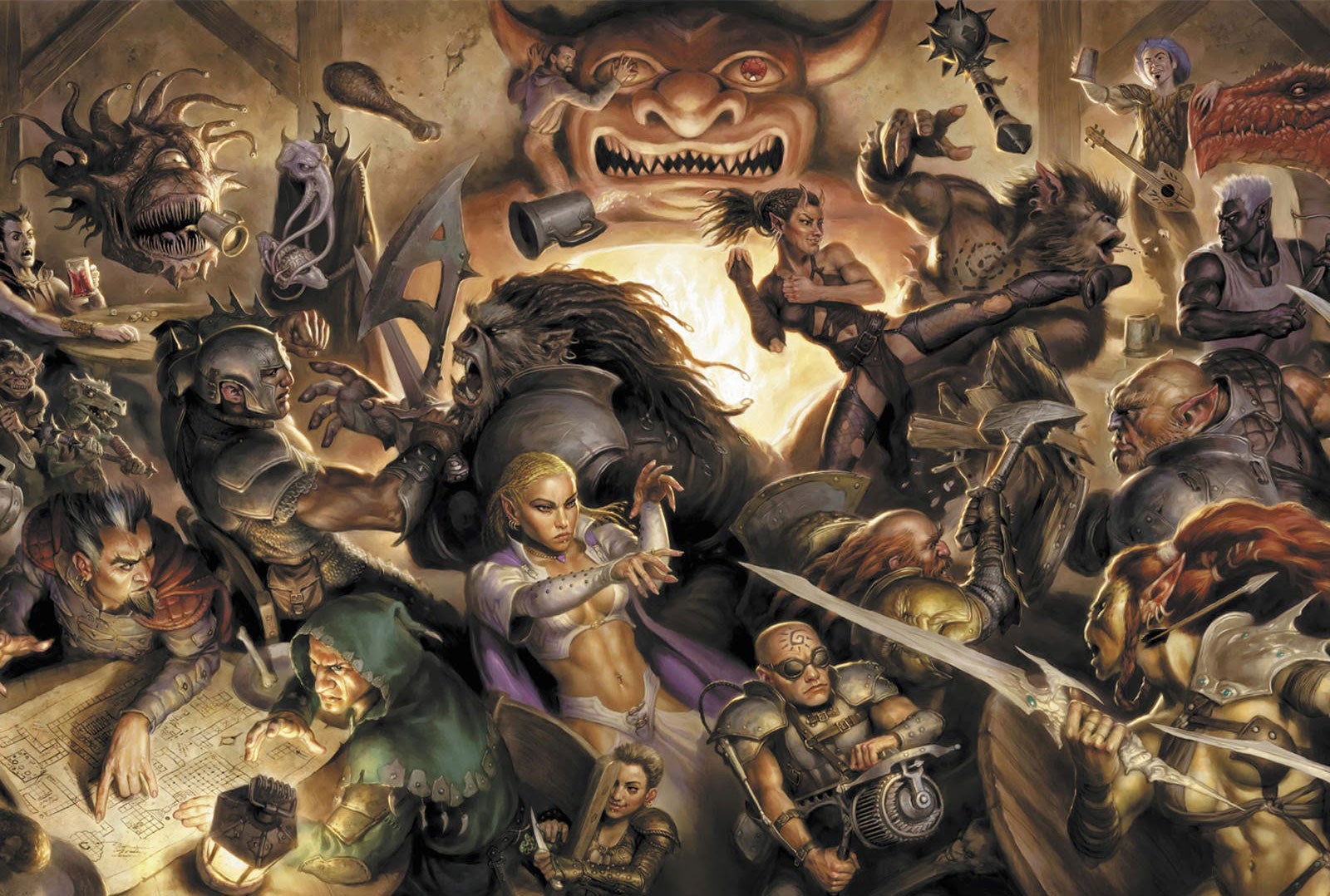Dungeons & Dragons embraces LGBT characters: 'Think outside binary notions'
New rulebook says: “You could also play a female character who presents herself as a man, a man who feels trapped in a female body, or a bearded female dwarf who hates being mistaken for a male."

In Dungeons & Dragons identity is everything. The iconic table-top game lets players define their character through numerous species and classes, with each decision (and sub-decision) affecting strengths, weaknesses and ultimately what sort of game they get to play.
But for all the choice on offer (do you want to be a Dwarf Pest Controller? A Paladin of Slaughter? A Clown?) D&D has tended to take a relatively conservative approach to definitions of gender and sexuality – until now.
In the latest version of the game’s rulebook (available to download for free) players are now asked to “think about how your character does or does not conform to the broader culture's expectations of sex, gender, and sexual behaviour,” adding “you don't need to be confined to binary notions."
The rulebook goes on to give the example of elves, some of whom are made in the image of the god Corellon Larethian, a figure that is “often seen as androgynous or hermaphroditic”. It continues: “You could also play a female character who presents herself as a man, a man who feels trapped in a female body, or a bearded female dwarf who hates being mistaken for a male. Likewise, your character's sexual orientation is for you to decide."
For D&D’s fans the changes are significant – even if many of them have been bending their character’s sexuality outside the rubric of the game for years. Dana Rudolph, an experienced Dungeon Master and founder of the LGBT parenting site Mombian.com, says that this is one of the reasons the fantasy classic has always resonated with the LGBT community.
“I think the very role-playing nature of D&D gives it an appeal to LGBT players, many of whom have had to ‘role play’ in their real lives, hiding their sexual orientation or gender identity,” she told The Independent. “Being able to be part of a world where they don't have to hide this - or where they can explore various identities while in the process of coming out or transitioning gender - can be very freeing.”
Rudolph points that although the rules are only suggestions, they let players – especially younger ones – know they were welcome. “Yes, there may still be players who are homophobic or transphobic, but an inclusive statement like in the new rules puts those players on notice that homo/transphobic comments or actions won't be looked on with favour in the D&D world at large.”
Looking at articles appraising D&D’s impact online, it seems clear that the game has offered a much needed haven for young people (and adults) who see themselves as outsiders or outcasts. In one piece from The Huffington Post titled “How ‘Dungeons and Dragons’ Saved My Life” Levi Miles explains how they game saved him from being “bullied at school for being a ‘faggot’” and helped him become “a confident, assertive and creative young man”.
Rudolph hopes that rules might even help introduce non LGBT players to consider new perspectives on sexuality and gender: “They could even be inspired to adopt an LGBT identity in D&D -- not because they are LGBT, but in order to try and view the world from an LGBT perspective. Who knows? They might even be motivated to rethink their responses to LGBT people in the real world.”
Bookmark popover
Removed from bookmarks